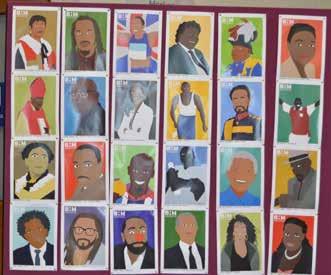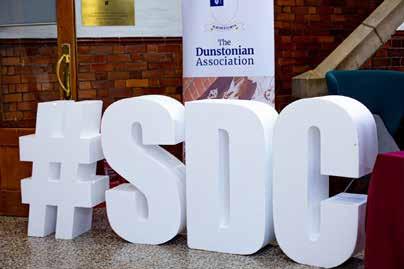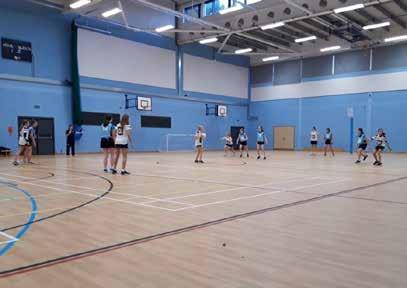CCF With the first lockdown behind us we knew that 2020–21 was going to be a challenging year for the CCF. Instead of watches and platoons the cadets were grouped into year group bubbles to allow training to continue. We also took the difficult decision to delay the new Year 9 cadets’ enrolment so that we could be Covid-secure. Both cadets and the CCF staff continued to parade on a Monday with an adjusted training programme. However, many of the annual trips and events the CCF officers had planned had to be cancelled due to social distancing rules. With a worldwide pandemic affecting our daily lives, we were forced to cancel all faceto-face training as the College once again went to remote teaching in January. This meant a dramatic re-think in the way the CCF operated, if training was to continue. The officers challenged themselves to design a 100% online CCF programme during these demanding times. My thanks go to all the CCF staff for their contributions to this exciting programme. In particular, I would like to thank Cdr Main (OiC Royal Navy) and Lt Whittaker (OiC Army) for their outstanding leadership of the remote training programme. Cdr Main’s ‘Gastro Galley’ where he delivered a naval cooking lesson direct from his kitchen, will be remembered by all the cadets, in particular his use of the phrase of ‘here’s one I prepared earlier’. Not to be outdone, Lt Whittaker decided to design his own avatars so that cadets could perform virtual ambushes on unsuspecting virtual officers, and online rifle drill sessions,
98
S T D U N S TA N ’ S C O L L EG E
using hockey sticks, umbrellas and walking sticks. I am sure these online CCF parades will stay in the memory of the CCF staff and cadets for a long time. On our return to face-to-face teaching, we were faced with the challenge of updating the training programme again due to the government guidelines and both cadets and staff showed great imagination and commitment to the training programme that was put together. We also took the decision the enrol the new Year 9 cadets at this point and provide them with an intensive training programme that would bring them up to the standard they would have achieved in a normal year. The commitment, dedication and enthusiasm shown by the cadets was commented on by all the CCF staff involved in their training. I would also like to thank the senior cadets who faced one of the hardest periods of training in CCF history and helped the staff to continue to run a CCF parade each week. Both cadets and staff were excited towards the end of the year when the government guidelines allowed us to start planning the CCF Contingent Dinner, an important event in any year, but especially after all that we had been



















































